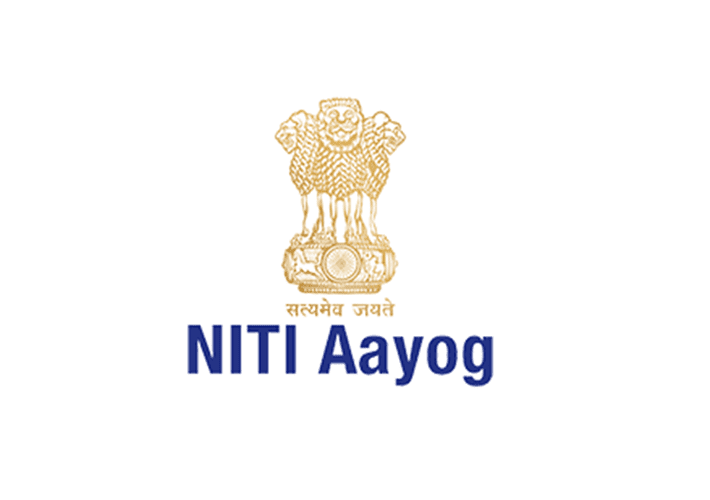NITI Aayog Releases Report on “S.A.F.E. Accommodation

The NITI Aayog has recently unveiled a pivotal report titled “S.A.F.E. Accommodation – Worker Housing for Manufacturing Growth.” This report emphasizes the importance of secure, affordable, flexible, and efficient (S.A.F.E.) accommodations for industrial workers in India. It outlines the challenges faced in providing adequate housing and offers actionable solutions to enhance the living conditions of workers. With the Indian manufacturing sector aiming to increase its contribution to the GDP from 17% to 25% by 2047, addressing housing issues is crucial for achieving this ambitious goal. The report aligns with the government’s vision of creating a robust manufacturing ecosystem that supports economic growth and job creation.
The Need for S.A.F.E. Accommodations
India’s manufacturing sector is at a critical juncture. The country aims to become a global manufacturing hub, driven by initiatives like “Make in India” and “Atmanirbhar Bharat.” To achieve this, a skilled and stable workforce is essential. According to the Economic Survey 2023-24, India needs to generate approximately 7.85 million jobs annually until 2030. A significant portion of these jobs will stem from the manufacturing sector, which increasingly relies on large-scale factories that require a centralized workforce.
However, inadequate housing near industrial hubs poses a significant challenge. Poor living conditions lead to high attrition rates, reduced productivity, and workforce instability. Many workers, especially women, face barriers to migration due to a lack of suitable accommodations. This limits the sector’s growth potential and hampers the overall economic trajectory of the country. The S.A.F.E. accommodation initiative aims to address these challenges by providing a comprehensive framework that aligns regulatory and financial frameworks, thereby unlocking sustainable housing solutions for workers.
Benefits of S.A.F.E. Accommodations
Implementing S.A.F.E. accommodations offers numerous benefits that can significantly enhance the manufacturing sector. Firstly, improving housing conditions leads to enhanced workforce productivity and retention. When workers have access to well-designed, proximate housing, their quality of life improves. This results in reduced commute times and increased overall productivity. Consequently, companies experience lower attrition rates and recruitment costs, ensuring a stable and skilled workforce.
Secondly, high-quality accommodations can attract global investments. Multinational corporations increasingly consider worker welfare and operational efficiency when making investment decisions. By demonstrating a commitment to international standards in worker housing, India can position itself as a preferred destination for manufacturing investments. Furthermore, aligning with global labor standards enhances India’s reputation and competitiveness in the global market, fostering stronger partnerships with international firms.
Lastly, the S.A.F.E. accommodation initiative creates a win-win-win scenario for workers, companies, and the government. Workers benefit from improved living conditions, leading to higher job satisfaction. Companies gain from a more stable and productive workforce, while the government achieves sustainable urban development and increased foreign investment.
Challenges and Proposed Solutions
Despite the clear benefits of S.A.F.E. accommodations, several challenges hinder their implementation. Restrictive zoning laws often prohibit residential developments in industrial zones, forcing workers to live far from their workplaces. This increases commute times and costs, negatively impacting productivity. Additionally, conservative building bye-laws limit the potential for high-capacity housing on available land, while high operating costs discourage private sector participation.
To address these challenges, the report recommends several regulatory and financial solutions. Firstly, worker accommodations should be reclassified as a distinct category of residential housing. This would ensure that residential property tax, electricity, and water tariffs apply, making it more financially viable for developers. Secondly, streamlining environmental clearances for S.A.F.E. accommodations can facilitate quicker approvals and reduce bureaucratic hurdles.
On the financial side, the report suggests implementing Viability Gap Funding (VGF) to support up to 30%-40% of project costs. This funding can help make large-scale worker accommodation projects more attractive to private developers. Additionally, promoting competitive bidding processes can ensure efficiency and cost-effectiveness in determining VGF support.
The provision of S.A.F.E. accommodations is not merely a welfare initiative; it is a strategic imperative for India’s economic growth. By addressing critical challenges in workforce retention, productivity, and global competitiveness, the initiative fosters sustainable urban development. Implementing the recommendations outlined in the report can create a robust ecosystem for industrial worker housing, enabling the manufacturing sector to thrive and significantly contributing to India’s vision of a developed nation by 2047. Collaboration among government, industry, and private developers is essential to make S.A.F.E. accommodations a reality.
For further details, the full report can be accessed here.
Observer Voice is the one stop site for National, International news, Sports, Editor’s Choice, Art/culture contents, Quotes and much more. We also cover historical contents. Historical contents includes World History, Indian History, and what happened today. The website also covers Entertainment across the India and World.
Follow Us on Twitter, Instagram, Facebook, & LinkedIn

